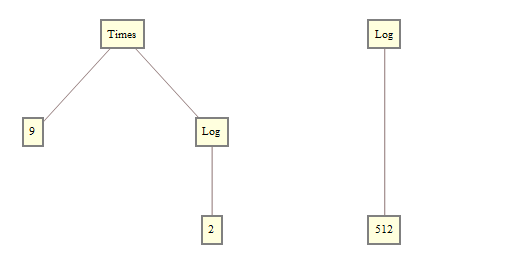Can you explain me about the result of Integrate.
\!\(\*SubsuperscriptBox[\(\[Integral]\), \(1\), \(3\)]\(\*SubsuperscriptBox[\(\[Integral]\),
\(1\), \(3\)]\*FractionBox[\(9 v\), \(v + u\ v\)] \[DifferentialD]u \[DifferentialD]v\)\)
(*
2 log(512)
*)
% // Simplify
(*
2 log(512)
*)
% // FullSimplify
(*
18 log(2)
*)
However, I cannot FullSimplify this result
FullSimplify[Log[512]]
(*
log(512)
*)
Log[512] // N
(*
6.23832
*)
FullSimplify[2 Log[512]] // N
(*
12.4766
*)
So question $1$ is how to simplify Log[512] and why it doesn't simplify to 9Log[2] by default.
9 Log[2] // N
(*
6.23832
*)
When I'm integrating by hand, I collect 9 or 18 easily, so I like the result 18 log(2) , not 2 log(512), so I wonder why Mathematica gives this result?

